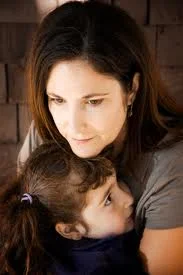QUESTION
How do you support your child’s teacher when you don’t agree with their behavior management practices?
MY PERSPECTIVE
When we pass off our children to complete strangers in the beginning of the school year with the expectation that they will adhere to our parenting beliefs and practices in addition to educating our children in brilliantly entertaining ways that will keep them engaged for 35 hours a week, we set ourselves up for disappointment. That’s why I personally keep my expectations very low so I can be pleasantly surprised when all is going well. (transparent sarcasm is beautiful, isn’t it?)
Here’s the reality. We come into contact with people every day whose practices do not align with our own. Often times, some our friends and family do not parent their own children the way that we do or want to. We then have options on how we want to handle it. We can remove ourselves from their lives because we don’t agree with them and are uncomfortable with their practices. Or we can continue to spend time with them, and then talk behind their backs about how we would NEVER parent the way they do. Or we can continue to spend time with them, accept our differences and stay firm in our beliefs and model what practices work for us.
When it comes to our children’s teachers, our options are virtually the same. We can ask to have them removed from the class and try someone new. We can have them continue in the class and build up our resentment towards the teacher and their perceived inferior practices and potentially have our judgment seep into our child’s head who in turn rejects the teacher’s practices as well and becomes non responsive or disruptive. Or we can keep them in the class so they learn how to adapt to different methods of practice, while firmly modeling what we feel works best at home.
If you opt to keep them in the class and choose not to build up resentment, it will be imperative to communicate your concerns with the teacher and explain how you manage behavior at home and why it works for you. You are then offering the support you mentioned and ideally educating them on alternatives that they may not have thought of or tried.
If they choose not to accept your suggestions, then you and your child are learning an excellent (and hard) lesson in adaptation and acceptance. And that’s a good thing because the more opportunities we learn to adapt and accept what is happening beyond our control, the easier it becomes for the inevitable next time.
On a personal note, I learned an invaluable lesson as a parent one year when my daughter’s teacher had a style that was quite the opposite of my own. She did not engage with me the way I had hoped and I was unimpressed with her demeanor. At the end of the year, my daughter cried on the last day of school because she loved her teacher so much and didn’t want to move on to anyone else. I then learned that just because the teacher’s style was not for me, didn’t mean it wasn’t good for my daughter. Her style worked just fine in engaging my child and promoting a love of learning, which is exactly what I wanted for her. She met my expectations without being what I wanted her to be.
Either that, or I’m not always the best judge of what my child needs. Nah…;)










